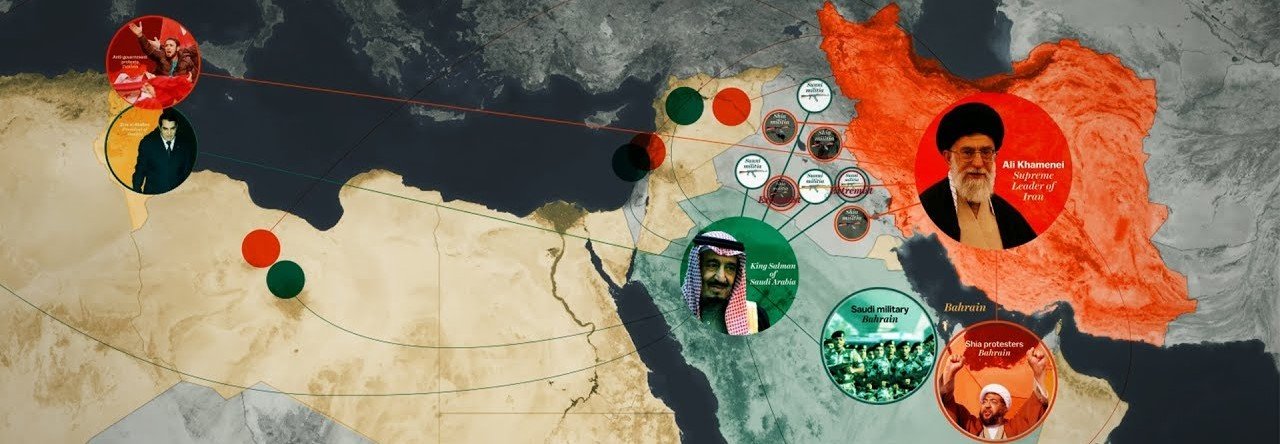

Apr
This article represents a textbook example of a post that could be shortened to precisely one sentence that answers the question which constitutes its title: no, China – US proxy wars do not represent a genuine threat, at least not at this point in time. However, we believe in digging deep here at ChinaFund.com and will therefore take our analysis to the next level by starting with one of the main mistakes experts tend to make when analyzing the US – China dynamic.
That mistake is represented by the tendency of seeing the US – China relationship from a US – USSR Cold War paradigm. And, indeed, proxy wars were one of the main components of the Cold War, with there being one (important, to the point of being the elephant in the room) nuance worth putting in the spotlight: China is not the USSR.
It bears repeating time and time again:
- China is not the USSR
- China is not Russia
As tempted as one may be to make quick USSR analogies based on superficial arguments such as China being run by the Communist Party of China, we need to understand that these are “apples to oranges” comparisons and nothing more.
Right off the bat, we would like to point out that no, China is not a “communist” entity and neither was the USSR. All we have to do to understand this is take a few steps back to the days when Karl Marx and Friedrich Engels were putting their thoughts on paper, with their views for the most part revolving around the fact that:
- Capitalism was in its final stages, soon to be replaced by socialism, which revolved around the state taking over a country’s means of production
- Socialism would eventually lead to so much widespread prosperity that a state would no longer even be necessary and as such, socialism itself was destined to ultimately be replaced by the STATELESS (with an emphasis on stateless) communism
Needless to say, we have never had such a stateless society and as such, scenario #2 never unfolded. For this reason, assuming it would be possible to bring Marx and Engels back from the dead and ask them what they thought about the USSR and think about today’s China, they would be quick to point out that using the term “communist” in either of the two cases would be fundamentally wrong.
Furthermore, if we also add Lenin to the mix and try to see China from the perspective of Marxism-Leninism, let’s just say any of the previously mentioned three characters (we will continue including Engels in the equation) would be left scratching their heads when asked to explain whether or not the current system over in China (socialism with Chinese characteristics, which has been covered through a dedicated article) has all that much to do with their ideology anymore.
Hint: it doesn’t.
Socialism with Chinese characteristics ended up embracing so many free market elements that the Marxist-Leninism paradigm no longer makes that much sense when describing how things stand over in China, with the many aspects which derive from that acknowledgement.
In line with the scope of this article, perhaps the most important one revolves around China not being all that interested in “branding” itself as anything other than a soft power, at least at this point in time. For this reason, it is quite unlikely that you will come across Chinese agitators who “pitch” the “amazing” benefits of communism to the disgruntled neo-proletariat when attending a friendly neighborhood gathering, unlike the (in)famous Soviet agitators of the past.
The same way, on a larger scale, you will realize time and time again that China is more interested in letting the economic dimension work in its favor than in trying to incite revolutionary movements in one country or another, with proxy wars being included in this equation. Again: China and the USSR have a completely different modus operandi and the proxy war dimension does not represent an exception.
Should you be on the lookout for an entity which CAN be compared to the USSR in a more compelling manner, Russia would most likely be your best bet but… well, on a (much) smaller scale.
The main message we are trying to get across is that the game has changed, even when it comes to “communist” nations such as China. While some elements associated with let’s say “Marxism – Leninism 1.0” can still be found (for example the propaganda dimension, even with its modern-day manifestations, which has been covered through a dedicated article), others are no longer (as) relevant in 2020 and beyond, with proxy wars and let’s say interventionism in general falling in this category, at least as far as China is concerned.
Why?
Everyone is free to speculate at the end of the day.
Perhaps it has to do with the fact that China, throughout its multi-millennia history, was never much of a fan of meddling in the affairs of other nations. Maybe it has to do with the costly nature of international conflicts, with proxy wars included in the equation, costly conflicts which arguably contributed to the USSR being brought to its knees… the list could go on and on.
The bottom line is this: yes, China and the United States are indeed adversaries and for primarily economic reasons if nothing else, that is unlikely to change anytime soon. But the nature of the “conflict” between the two entities has little in common with the excessively ideologically charged Cold War and is far more firmly entrenched in the pragmatic world of economic as well as geopolitical interests.
Might this change at one point or another?
Of course.
But for the time being, we would strongly recommend embracing a worldview that is more in line with today’s realities than with the stereotypes of the past.
